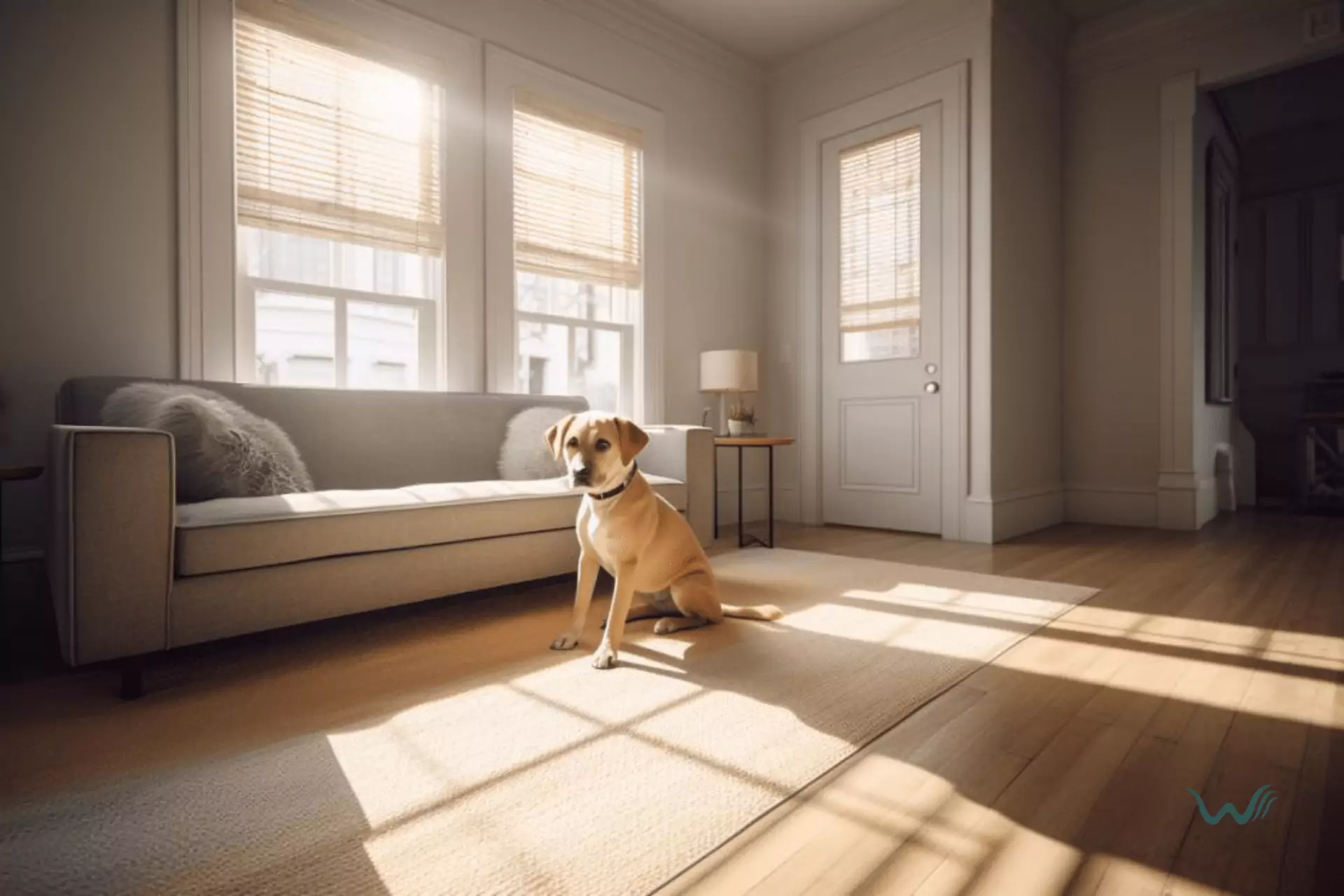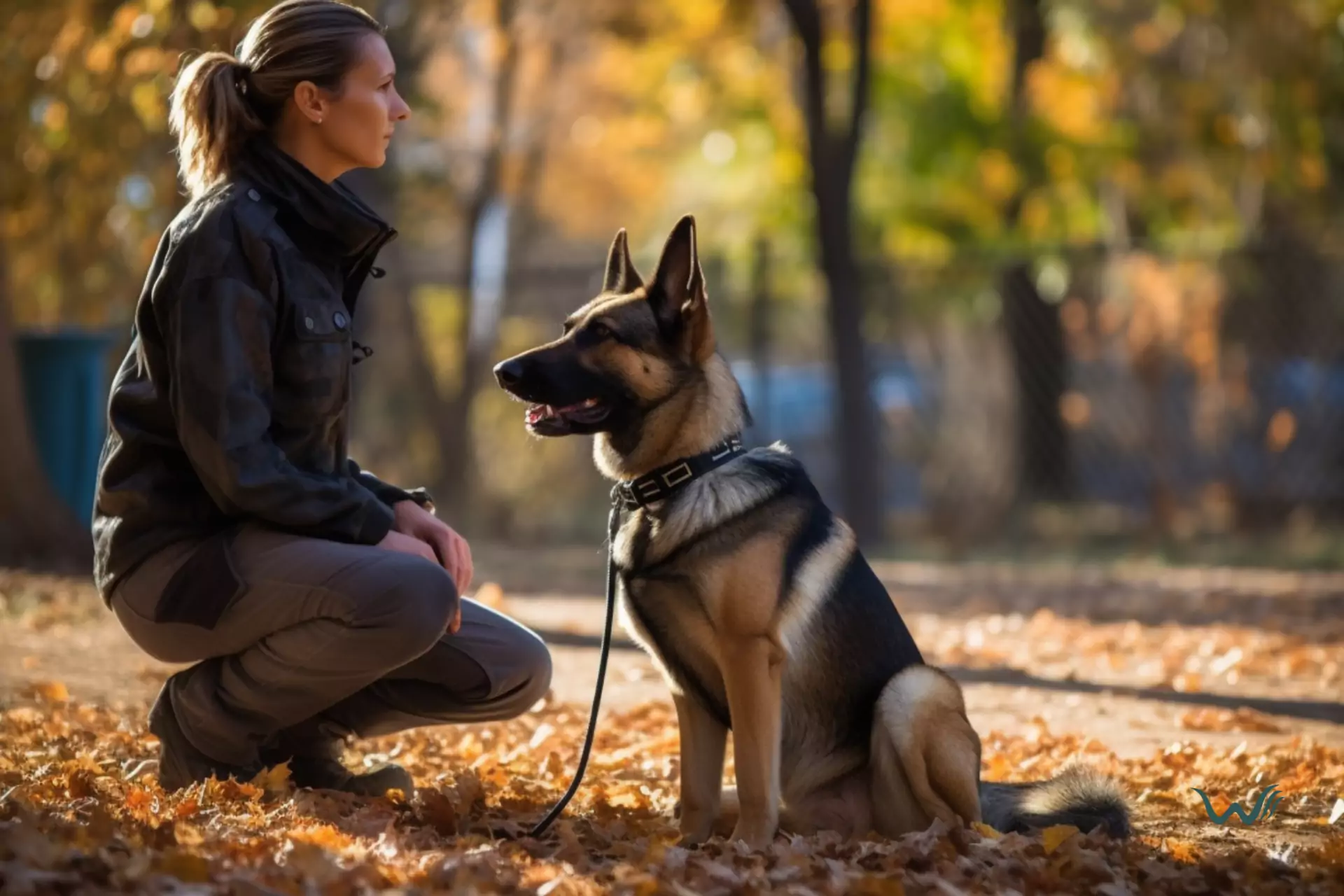

Overcoming Housebreaking Challenges With Puppies: Tips For Owners
by Tayyaba Amir
Last updated: March 5, 2024
Verified and Approved by:
Angela Morris,
MSW, LCSW
Fact Checked

Are you struggling with housebreaking your new puppy? You’re not alone. According to a recent survey, 85% of new puppy owners face challenges when it comes to housebreaking. It can be a frustrating and messy process, but fear not! In this article, we will provide you with valuable tips and strategies to help you overcome these challenges and successfully housebreak your furry friend. Housebreaking a puppy requires patience, consistency, and understanding. It is an essential step in their training and will ensure a harmonious living environment for both you and your four-legged companion.
By following a few simple techniques and establishing a consistent routine, you can make the housebreaking process smoother and more effective. Additionally, we will explore the power of positive reinforcement and how it can be used to motivate your puppy and reinforce good behavior. Accidents are inevitable during the housebreaking process, but we will also discuss how to handle them with patience and understanding. If you find yourself facing overwhelming challenges, we will guide you in seeking professional help.
Understanding the Housebreaking Process
Did you know that understanding the housebreaking process is important for successfully training your puppy? Housebreaking refers to the process of teaching your puppy to eliminate outside and not inside your home. It’s an essential step in ensuring a clean and hygienic environment for both you and your furry friend.
To effectively housebreak your puppy, it’s important to understand their instincts and behaviors. Puppies have an instinct to keep their sleeping and eating areas clean. They don’t want to soil the places where they eat and sleep. By understanding this, you can use it to your advantage when housebreaking your puppy.
Create a designated potty area outside where your puppy can relieve themselves. Take them to this spot consistently after meals, naps, and playtime. By consistently reinforcing this routine, your puppy will begin to associate the outdoor area with going potty.
Additionally, it’s important to be patient and consistent during the housebreaking process. Puppies have limited bladder control and may not be able to hold it for long periods. Be prepared for accidents to happen and avoid scolding or punishing your puppy when they have an accident indoors. Instead, focus on positive reinforcement when they eliminate in the designated outdoor area. This will help your puppy understand that going potty outside is the desired behavior.
Establishing a Consistent Routine
To establish a consistent routine for your puppy’s housebreaking, it’s important to create a schedule that includes regular feeding times and designated potty breaks. Puppies thrive on routine and structure, so having a set schedule will help them understand when it’s time to eat and when it’s time to go outside.
Plan to feed your puppy at the same times each day, usually three to four times for younger puppies, and twice a day for older ones. By having regular feeding times, you can predict when your puppy will need to go potty, making it easier for you to take them outside at the appropriate times. In addition to regular feeding times, it’s essential to have designated potty breaks throughout the day.
Take your puppy outside first thing in the morning, after meals, after playtime, and before bedtime. These are the times when they are most likely to need to relieve themselves. By consistently taking them outside during these times, you are teaching them that going potty happens outside, not inside the house. Be patient, give them plenty of time to do their business, and reward them with praise or a treat when they go outside.
Using Positive Reinforcement Techniques
When training your puppy, remember that using positive reinforcement techniques is key for successful housebreaking. Positive reinforcement involves rewarding your puppy for good behavior instead of punishing them for mistakes.
Here are three effective positive reinforcement techniques that can help you overcome housebreaking challenges with your puppy:
- Treat rewards: When your puppy successfully goes to the bathroom outside, immediately reward them with a small treat. This will reinforce the behavior and help them understand that going outside is the desired action. Make sure to use small, easily digestible treats and give them immediately after they finish relieving themselves.
- Verbal praise: Along with treats, it’s important to provide verbal praise when your puppy goes to the bathroom outside. Use an enthusiastic tone and say things like “Good job!” or “Well done!” This positive reinforcement will help them associate going outside with praise, making it more likely that they will continue to do so.
- Playtime rewards: Another effective positive reinforcement technique is to reward your puppy with playtime after they successfully go to the bathroom outside. This can be in the form of a quick game of fetch or a fun play session. By associating going outside with playtime, your puppy will be motivated to repeat the behavior.
Handling Accidents with Patience and Understanding
Be patient and understanding when accidents happen with your puppy, as they’re still learning and need your guidance. Housebreaking can be a challenging process, but it’s important to know that accidents are a normal part of the learning curve. Instead of getting frustrated or angry, approach accidents with patience and understanding.
Your puppy is still developing their bladder control and may not fully understand where they should be going to the bathroom. Instead of scolding or punishing them, calmly clean up the mess and redirect them to the appropriate spot, whether it be outside or on a designated pee pad. By doing this, you’re teaching them where they should be going and reinforcing positive behavior.
In addition to patience, it’s important to understand that accidents are not the puppy’s fault. They’re still learning and may not have fully grasped the concept of housebreaking yet. Instead of getting upset, try to view accidents as opportunities for growth and learning.
By remaining calm and understanding, you’re creating a safe and supportive environment for your puppy to learn and develop. Praise and reward them when they do go to the appropriate spot, as positive reinforcement will help reinforce the desired behavior.
Seeking Professional Help if Needed
If you’re struggling with housebreaking your puppy, don’t hesitate to reach out to a professional for expert guidance and support. Housebreaking can be a challenging process, especially for first-time dog owners. It requires consistency, patience, and a deep understanding of your puppy’s needs. While accidents are bound to happen, seeking professional help can make the housebreaking journey smoother and more successful.
A professional dog trainer or behaviorist can provide invaluable assistance in housebreaking your puppy. They have the knowledge and experience to assess your specific situation and provide tailored advice and strategies. They can help you understand the underlying causes of your puppy’s accidents and guide you on how to address them effectively. Additionally, a professional can provide you with a structured training plan, ensuring you stay on track and make progress. They can also offer support and encouragement, which can be incredibly helpful during the challenging moments of housebreaking.
To give you an idea of what a professional can offer, here’s a table outlining some of the benefits of seeking professional help in housebreaking your puppy:
| Benefits of Seeking Professional Help in Housebreaking Your Puppy |
|---|
| Expert guidance and support |
| Tailored advice and strategies |
| Understanding the underlying causes of accidents |
| Structured training plan |
| Support and encouragement |
It’s okay to ask for help. Seeking professional assistance can save you time, frustration, and unnecessary stress. By working with a professional, you can overcome housebreaking challenges more efficiently and ensure a harmonious relationship with your puppy.
Frequently Asked Questions
How long does it typically take for a puppy to be fully housebroken?
Typically, it takes a puppy around 4 to 6 months to be fully housebroken. Stay patient, reward their successes, and provide frequent potty breaks to speed up the process. You’ve got this!
What are some common mistakes that owners make during the housebreaking process?
Some common mistakes owners make during housebreaking include not being consistent with the schedule, not supervising their puppy closely enough, and punishing accidents. Remember, patience and positive reinforcement are key to success!
Can I use punishment-based training methods to help my puppy with housebreaking?
Using punishment-based training methods for housebreaking may seem tempting, but it’s not recommended. Positive reinforcement is more effective and builds trust with your puppy. Focus on rewarding good behavior and being patient during the process.
Are there any specific breeds that are more difficult to housebreak than others?
Some breeds may present more challenges when it comes to housebreaking, but with patience and consistency, any breed can be successfully trained. Remember to set clear expectations and reward your puppy for good behavior.
What should I do if my puppy continues to have accidents even after following all the housebreaking tips and techniques?
If your puppy is still having accidents despite following all the housebreaking tips, don’t worry. Keep calm and consistent. Consider taking them to the vet to rule out any medical issues, and try different methods until you find what works for your pup.
Certify Your Emotional Support Animal Today

Why You Can Rely on Us?
At Wellness Wag, we believe your pet deserves care rooted in both science and compassion. Each article is carefully researched, written in clear language for pet owners, and then reviewed by qualified professionals to ensure the information is evidence-based, current, and practical for real-life care. Our goal is to help you feel confident in making informed decisions about your pet’s health and well-being.
Reviewed by
Angela Morris, MSW, LCSW
Angela is a licensed clinical social worker with 20 years of experience in patient advocacy and community mental health. She has assisted numerous clients with ESA evaluations and brings a deep understanding of disability accommodations, ensuring that all information is accurate, supportive, and practical.

Written by :
Tayyaba Amir
Last Updated :
March 5, 2024










